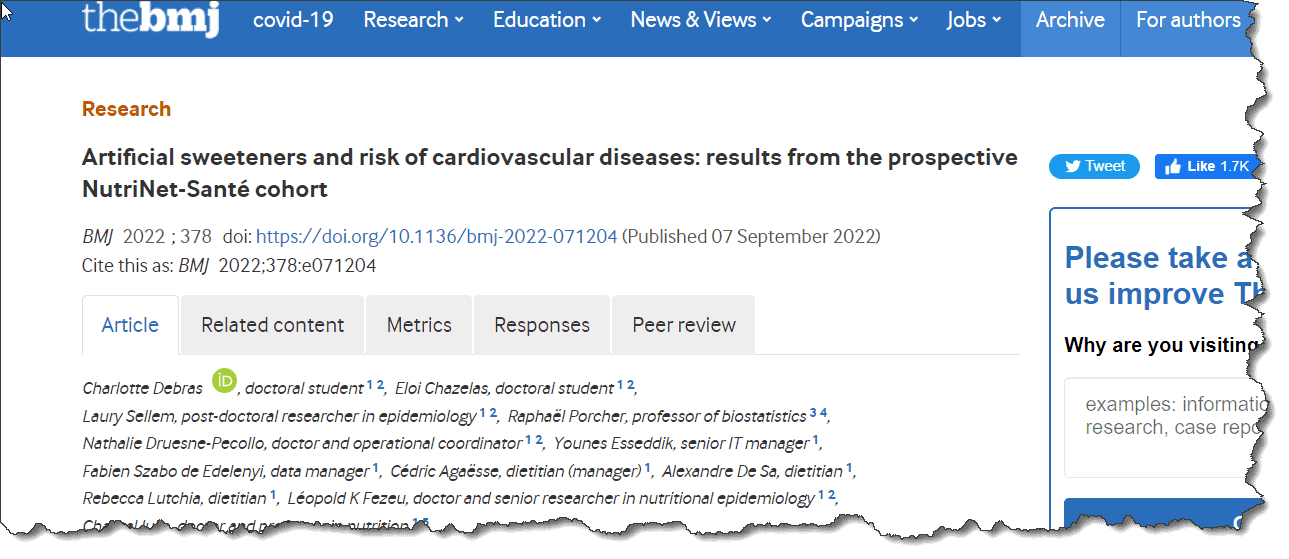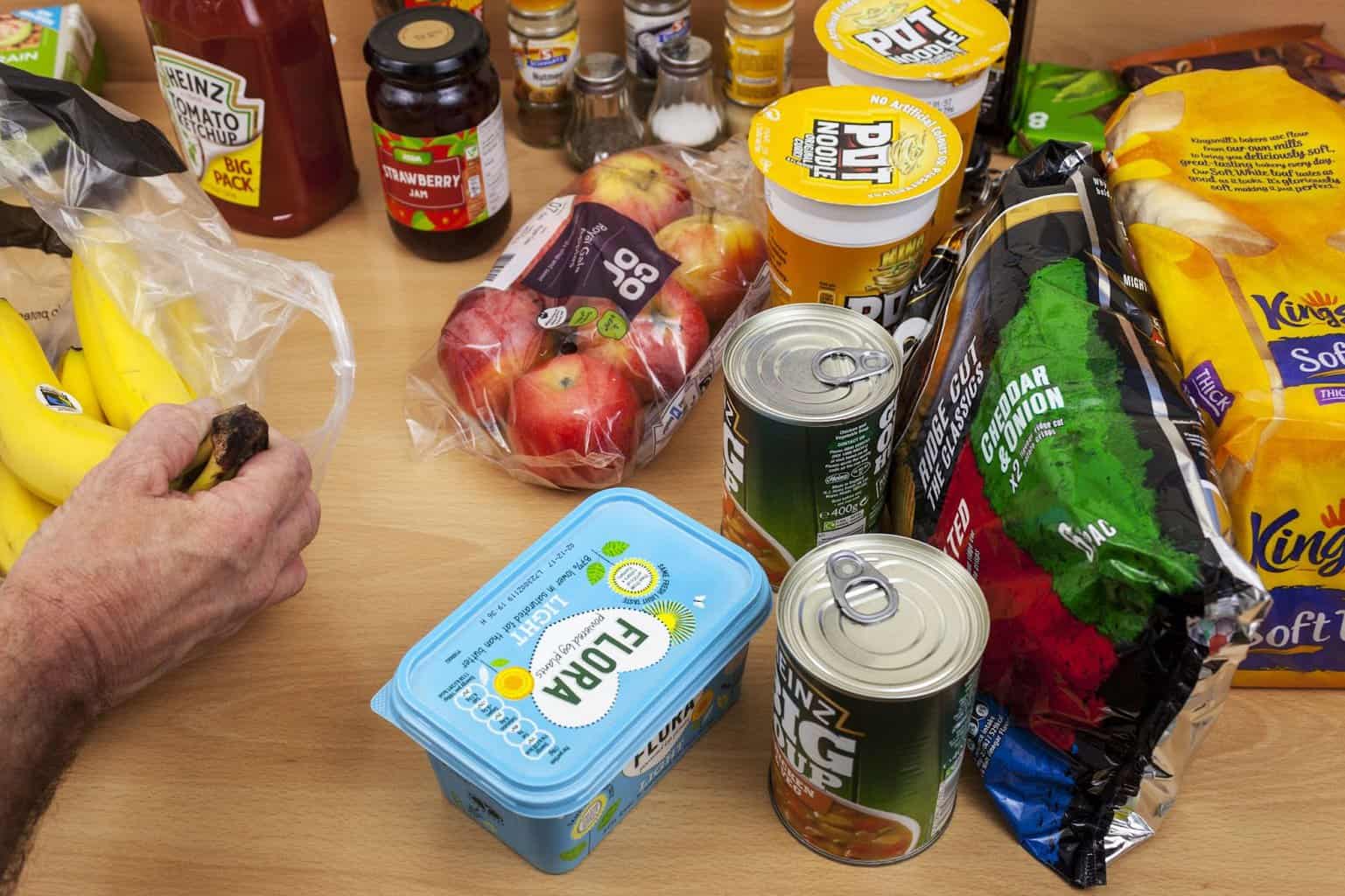
This is something Big Food has been covering up for decades…
Unsubscribe | Report as spam | Change email preferences
—-Important Message for Single Men From Shawn Haskell—-
Are you willing to watch this if it lands you hot young 10s all the time?
Have you ever felt “invisible” to women?
Like there’s a brick wall between them and you?
And maybe you’ve had a little bit of success in the past with a girl or two…
But it’s been a while and the longer time goes by the worse your “game” gets.
And meeting a girl now seems almost impossible, doesn’t it?
And forget online dating. No matter how much “swiping” you do…
But I can tell you with absolute confidence…
…this simple, repeatable scientific method makes it easy to start banging young beautiful women…
———-
Why I never drink sugar-free beverages
It’s far past time for the food industry to be more transparent about the potential risks of sugar substitutes.
Many products marketed as “healthy” or “low-calorie” contain sweeteners.
These sweeteners include aspartame, acesulfame potassium, sucralose, and erythritol.Consumers have a right to know what they’re putting in their bodies, and about how those substances will affect their health!
People should be able to make informed decisions about what they eat and drink, but that’s impossible if they don’t have all the facts.
If you’re trying to be healthy, you might think switching to sugar-free drinks is a good idea.
After all, they are marketed as a healthy alternative.
But are they?
Research shows that non-sugar sweeteners may not be as good for you as you think.
In fact, they could increase your risk of heart disease and blood clots.
A study of over 100,000 French adults found that people who regularly used artificial sweeteners were more likely to develop cardiovascular disease.
Aspartame users were 18% more likely to have strokes…
…while those using sucralose or acesulfame potassium were 30-40% more likely to develop coronary heart disease.
Our results suggest no benefit from substituting artificial sweeteners for added sugar on CVD [cardiovascular disease] outcomes.
My colleague Heather’s Dad has always called Nutrasweet (aspartame) Nutra-poison. It turns out he was probably right!
Another study found that erythritol, a popular sugar substitute, can encourage blood clots that lead to heart attacks and strokes.
Blood exposed to erythritol clots more easily, so consuming it increases your risk of heart problems.
Even small amounts, like those found in a pint of keto ice cream, can be problematic.
Our findings reveal that erythritol is both associated with incident MACE risk and fosters enhanced thrombosis. Studies assessing the long-term safety of erythritol are warranted.
But what about losing weight? Don’t these sweeteners work for that?What if I told you that researchers are concerned that non-sugar sweeteners may also promote fat formation and inflammation…
…which can be more harmful for overweight or obese individuals?It’s shocking, but it’s true!
In the cohort studies, consumption of nonnutritive sweeteners was associated with increases in weight and waist circumference, and higher incidence of obesity, hypertension, metabolic syndrome, type 2 diabetes and cardiovascular events. Publication bias was indicated for studies with diabetes as an outcome.
I personally think that the Big Food industry isn’t very interested in “going public” with these findings…
…and your doctor probably doesn’t know about them.
That’s why it’s up to you to educate yourself, and it’s why I write these articles. As a general rule of thumb, it’s a very bad idea to put “fake food-like substances” into your body.
They just aren’t good for you.
Personally, I never eat fake sugar or fake anything else if I can help it.
This stuff isn’t what your body is designed for.
Non-sugar sweeteners may not be the healthy choice they’re often thought to be.
They can increase the risk of heart disease and blood clots, and it’s outrageous that this information isn’t more widely known.
The food industry has a responsibility to be transparent about the potential risks of sugar substitutes…
…and healthcare professionals should be educating their patients about the latest research.
Unfortunately, they aren’t living up to that responsibility and they are just selling us garbage for our bodies instead…
—-Important Warning for Men—-
Beware this dangerous killer lipid hiding in the food supply
There’s a dangerous toxic lipid hiding in many so-called healthy foods… even “diet” foods…
And this toxic lipid can be traced back to obesity, heart disease, diabetes, even Alzheimer’s!
Unfortunately, it can be very hard to avoid this toxic lipid — it’s in so many foods these days…
Which is why I’ve come up with a simple method to destroy it — before it gets into the bloodstream and wreaks havoc inside the body.
So this way you can still enjoy the foods you love without polluting your body with this poisonous toxic lipid.
Here’s the method — I call it the Kraepelin Effect and it only takes 45 seconds
———-




